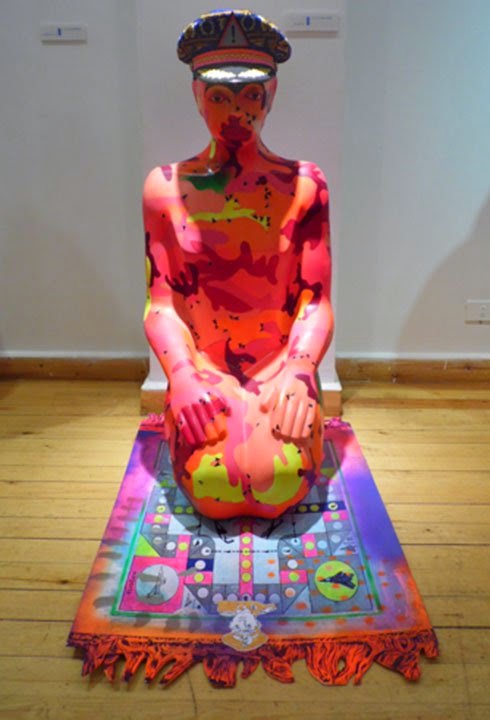Mada Masr
Textile workers killed in factory collapse, shot in labor protest
September 16, 2014
Jano Charbel
On Tuesday, rescue teams recovered the fifth body from the rubble of a garment dying factory that collapsed early on Monday morning in Obour City, an industrial area outside of Cairo. The incident also reportedly injured more than 30 workers, who were on the night shift at the time of the accident.
On Monday, the Agence France-Presse reported six casualties, but local media only report five deaths.
Factory workers and witnesses attributed the fatal accident to the unauthorized construction of a third floor in the factory. Nearly half the company’s workforce was inside the building when one of the new ceilings reportedly caved-in.
The prosecutor general’s office sought to question factory owner Bekheit Ramzy Beshaiy regarding the incident, but he and the company’s three co-owners could not be located, the privately owned newspaper Youm7 reported on Tuesday. The prosecutor has banned the four men from travel, according to the newspaper.
The factory’s architects and engineers are also being investigated in the incident.
Compensation is being sought for the injured and deceased workers, while lawsuits are also reportedly being filed. The prosecutor is considering leveling criminal liability charges against the company owners, the newspaper said.
Factory workers blamed the owners’ “greed and neglect of safety standards” for the tragedy, reported the privately owned news site Al-Badeel. They also criticized the “slow response from emergency services” to recover their coworkers’ bodies from the rubble.
Elsewhere in the textile industry, on Sunday police forces shot seven workers from the Alexandria Textiles Company and arrested 14 others during a labor protest.
The workers’ league at the company issued a statement online claiming that hundreds rallied outside the company gates on Sunday to peacefully protest for the payment of their overdue bonuses and wages, which are two months late.
Police forces were deployed to forcefully disperse the protest, the statement continued, alleging that Central Security Forces fired tear gas and birdshot, injuring six workers, while a seventh was reportedly shot with a lead bullet.
The injured protesters are in serious condition. No fatalities have been reported in the incident.
The 14 workers arrested during the protest were released from detention Monday night pending investigations, reported the state-owned newspaper Al-Ahram.
On Tuesday, the privately owned Al-Mogaz news site published statements attributed to the protesting workers, declaring that they would not allow any raw materials into the factory or release any textiles until the overdue wages were paid in full.
Prosecutors in Alexandria called the workers’ protest actions “unauthorized,” Al-Ahram reported, and accused them of “blocking roads, obstructing traffic and transportation, thuggery and terrorizing the populace.”
The state-owned paper did not report any excessive use of police force against the demonstrators




























